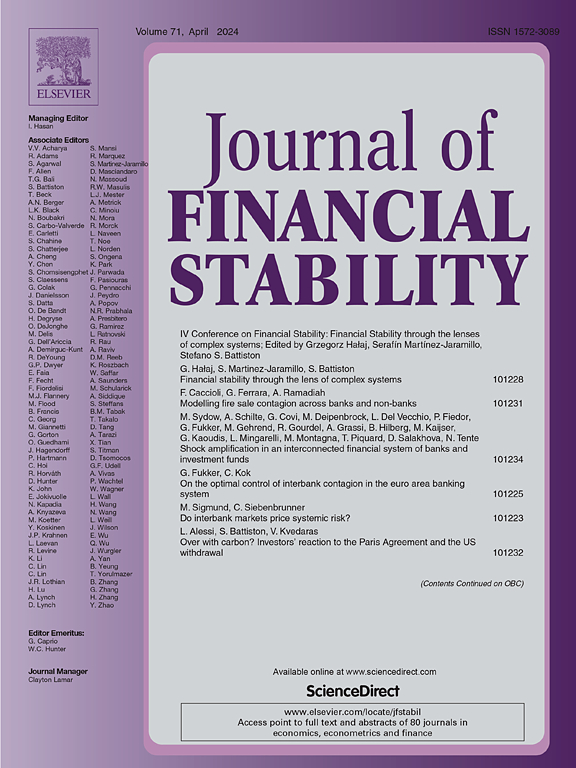理解央行对地缘政治风险的反应:来自美联储和欧洲央行的证据
IF 4.2
2区 经济学
Q1 BUSINESS, FINANCE
引用次数: 0
摘要
本文利用VAR和Local projection模型,结合宏观经济因素和货币政策冲击,研究了1994年1月至2024年3月期间美联储和欧洲央行对银行对地缘政治风险的反应的潜在机制。我们的研究结果表明,央行对地缘政治风险事件的反应是通过收紧货币政策来抵御潜在的通胀压力。然而,这种影响往往是暂时的,因为政策制定者通常在经济扩张期间采取宽松措施,在经济收缩期间转向紧缩政策。分析央行行长任期内的反应,我们发现,尽管早期的反应有限,但近年来,两家央行的反应都更加强烈和迅速,反映出它们对地缘政治风险的担忧日益加剧。此外,我们还发现,在资本流动和贸易活动变化的推动下,美联储采取了更为宽松的立场,以应对美中双边地缘政治风险冲击。相比之下,欧洲央行的反应更一贯地是紧缩性的,特别是在通胀担忧加剧或地缘政治紧张局势威胁欧元区价格稳定的时期。本文章由计算机程序翻译,如有差异,请以英文原文为准。
Understanding central bank responses to geopolitical risks: Evidence from the Fed and ECB
Using VAR and Local Projections models, enhanced with macroeconomic factors and monetary policy shocks, we investigate the underlying mechanisms through which the Fed’s and ECB’s react to bank reactions of geopolitical risks between January 1994 and March 2024. Our findings reveal that central banks react to geopolitical risk events by tightening monetary policy to fend off potential inflationary pressures. However, the effect is often temporary, as policymakers typically adopt accommodative measures during economic expansions and shift to tighter policies during contractions. Analyzing reactions based on central bank presidents' tenures, we find that while earlier responses were limited, in recent years, both central banks have reacted more strongly and immediately, reflecting their growing concern over geopolitical risks. Furthermore, we document that the Fed adopted a more accommodative stance in response to bilateral geopolitical risk shocks between the US and China, driven by changes in capital flows and trade activities. In contrast, the ECB’s responses were more consistently contractionary, particularly in periods of heightened inflation concerns or when geopolitical tensions threatened price stability within the euro area.
求助全文
通过发布文献求助,成功后即可免费获取论文全文。
去求助
来源期刊

Journal of Financial Stability
Multiple-
CiteScore
7.70
自引率
9.30%
发文量
78
审稿时长
34 days
期刊介绍:
The Journal of Financial Stability provides an international forum for rigorous theoretical and empirical macro and micro economic and financial analysis of the causes, management, resolution and preventions of financial crises, including banking, securities market, payments and currency crises. The primary focus is on applied research that would be useful in affecting public policy with respect to financial stability. Thus, the Journal seeks to promote interaction among researchers, policy-makers and practitioners to identify potential risks to financial stability and develop means for preventing, mitigating or managing these risks both within and across countries.
 求助内容:
求助内容: 应助结果提醒方式:
应助结果提醒方式:


